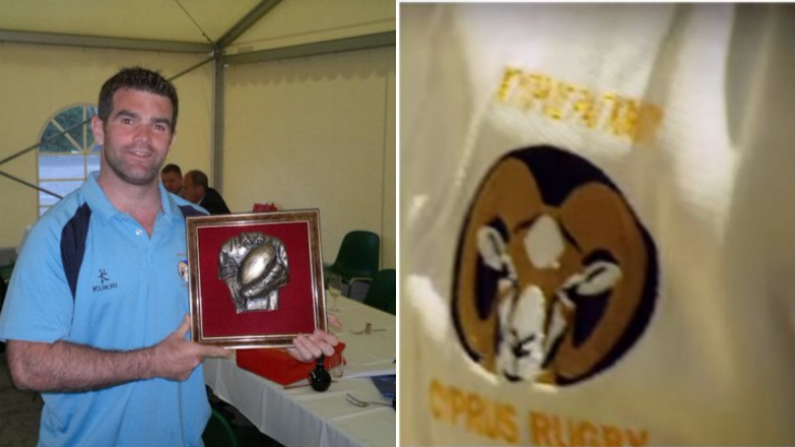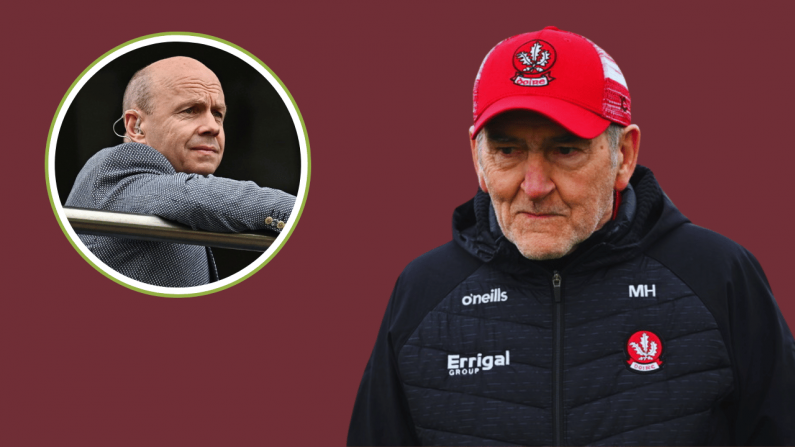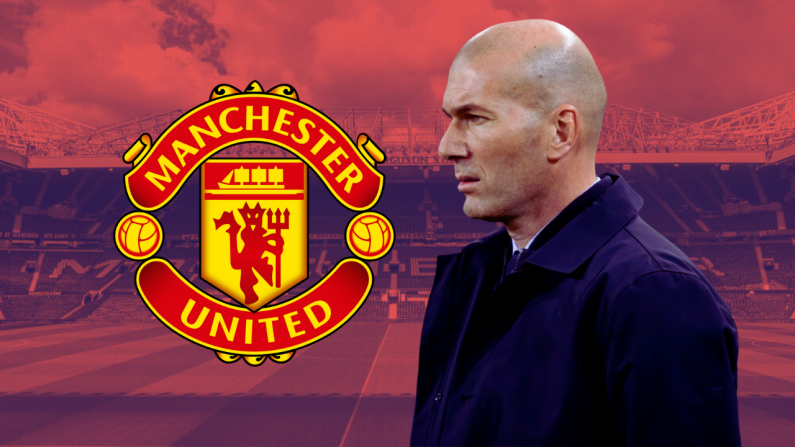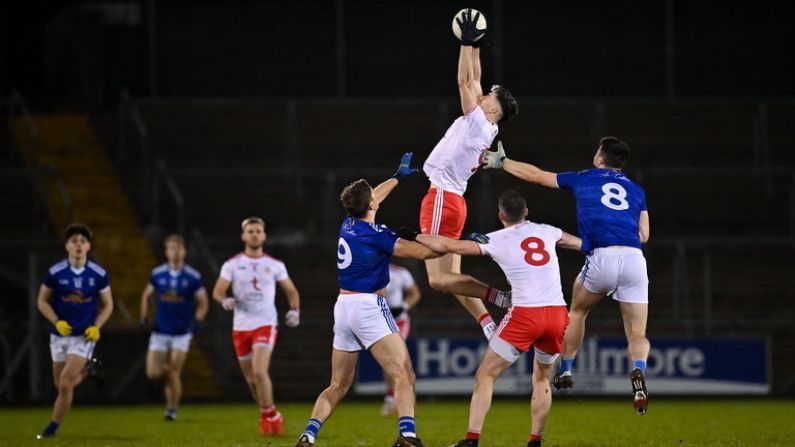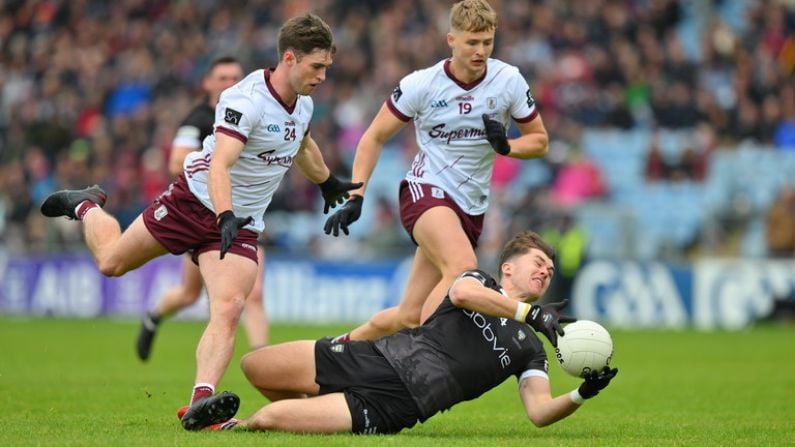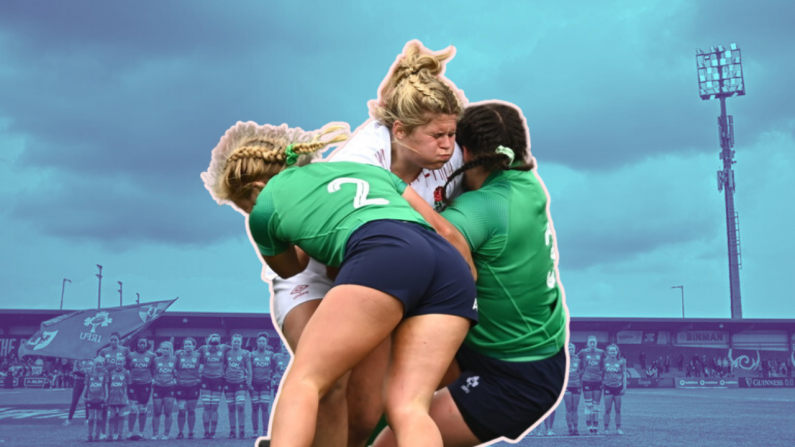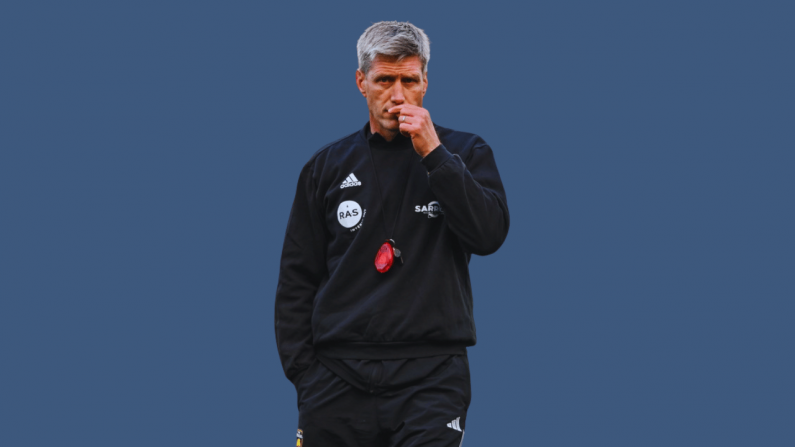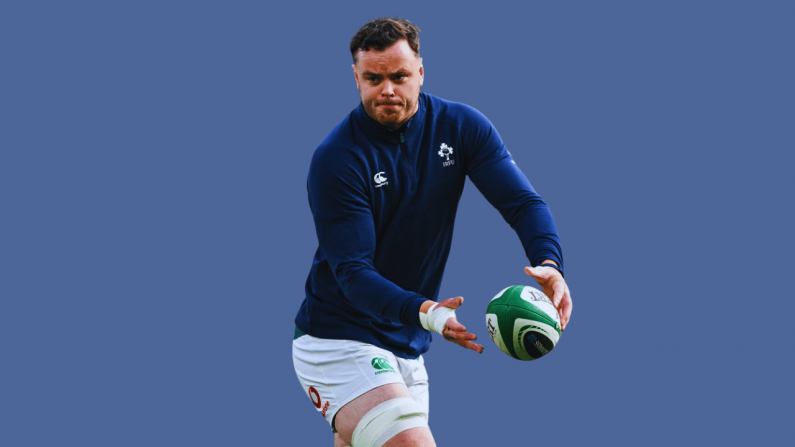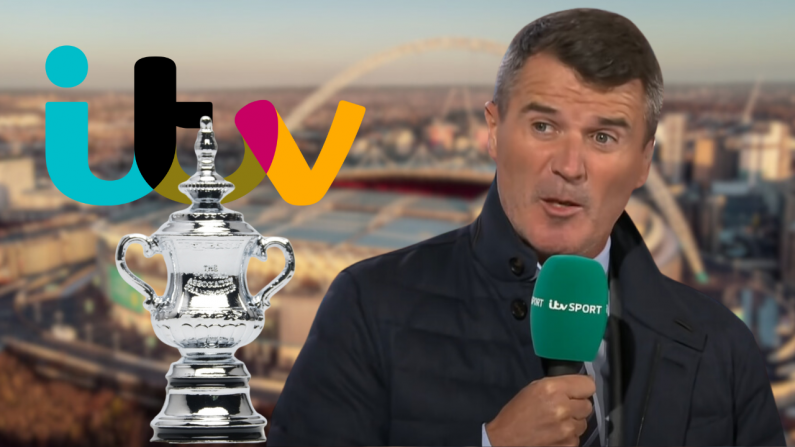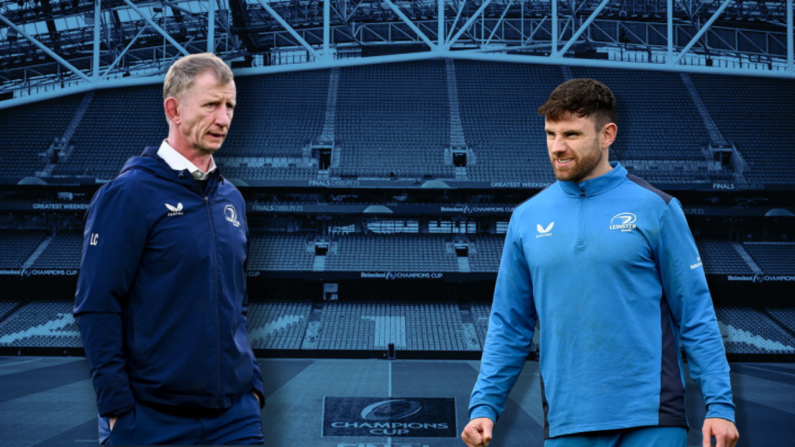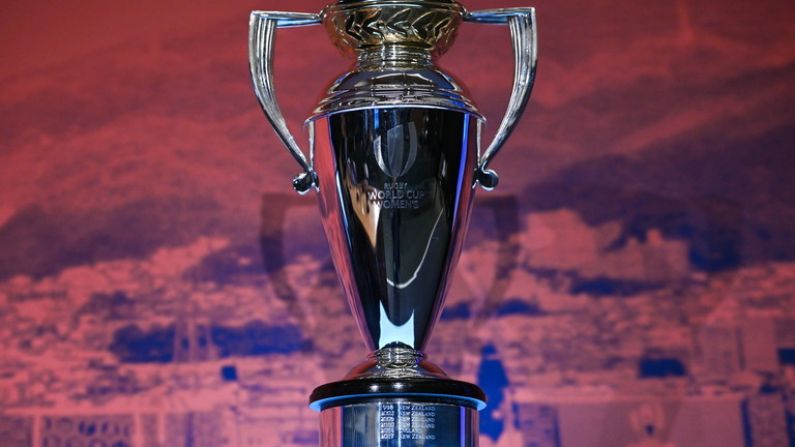In the last five months, New Zealand and England were roughly disabused of the notion that they would set a world record for consecutive test match wins by Ireland, and then the consolation that they had come so close was erased by a closer look at the record books. The All Blacks believed they had set the record at 18 and England thought they had matched it, only for it to emerge to the wider rugby consciousness that the record actually stands at 24 games, and is laid claim to by Cyprus.
Cyprus began their 24-game, six-year winning streak with a 37-3 win against Azerbaijan, and it ended with a 39-20 loss away to Latvia in 2014. While the Irish influence in ending world records has been overstated, the Irish role in creating that record has gone unnoticed: their first head coach and first try-scorer are both from Dublin.
The Cypriot national side played their first game in March 2007, and had as their head coach Niall Doherty. He was Ollie Campbell's half-back partner on the Belvedere side that won the 1971 Leinster Schools' Cup, before injury robbed him of progression beyond club rugby with Belvedere. Doherty then took his coaching badges, and is now an accredited World Rugby Coach Educator. He found himself in Cyprus in 2006, and was asked to take charge of a national side still in its embryonic phase.
Up to 2003, rugby in Cyprus was largely restricted to games between British military sides on the two sovereign base areas maintained as an agreement to grant independence in 1960, but the return of South African and English ex-pats, whose parents emigrated during then Turkish invasion in 1974 led to the proliferation of the game among natives.
Many of the ex-pats descendants returned with a rugby ball, and they founded a club called Paphos Tigers, whom Doherty coached. The year Paphos became champions of the domestic league - played between a couple of Cypriot sides and some British military sides, the former having to request specific permission to travel to play those sides as a touring side, as the latter fell under the jurisdiction of the RFU - the Cyprus Rugby Federation was formed, and Doherty was asked to become the head coach.
He gratefully accepted, and then set about forming a team. To do so, he had to do some research, as he told Balls.ie:
The club scene was reasonable: there were five or six players there suitable for international rugby. There were a lot of ex-pat South africans who returned after their parents left at the time of invasion, so there was a fairly good core there.
I had a front row pairing, I had a half-back pairing, so then I started surfing the net to find the rest of the squad. I found out that the captain of London Welsh at the time, a professional, was a Cypriot, and I found a couple of other Cypriot guys through networking.
We pulled the whole thing together, invited the guys over, put together a camp for them, and formed a national team from there.
One of those to answer the call was Colm O'Cleirigh, another native of Dublin, who played his rugby with Bective. His grandmother hailed from Cyprus, but stumbled across the opportunity to line out for Cyprus somewhat fortuitously:
Family here were visiting our family out in Cyprus, I was back here in Ireland, and they asked me if I wanted any presents. I asked them for a Cypriot rugby jersey just in case it existed, because I wasn’t sure whether it did or not.
I asked them for it, and then I looked online for Cyprus Rugby, and I found a website, a very crude, simple website and it said ‘If you’re interested in getting involved, send us an email’. So I sent them an email asking what it takes to get involved.
Then a couple of days later, I got a phone call from a Cypriot number, and it was an Irish guy from Belvedere, who turned out to be the head coach of Cyprus rugby. Apparently they had had only one game in their history, in March against Greece.
That game went well, and soon Cyprus were competing against Azerbaijan, Slovakia, and Monaco in Division 3D of the European Nations Cup. O'Cleirigh played throughout the tournament as a centre and wing, and in the opening game at home to Azerbaijan he became the first Cypriot player to score a try in a test game.
The path to competition was laced with difficulty. Money didn't talk as much as it screamed ignorance, with players forced to pay the fee required to use the training pitch Paphos shared with the local football club. Players, too, initially had to fork out for their own flights, as the Federation struggled to attract sponsorship and government funding in a country obsessed with football.
Such parsimony begot determination, and amid compromise - players agreed to pay €50 toward each flight they took - they got by. And once Cyprus survived, they began to thrive.
The world record run began in Baku, a 37-3 win earned in absurdly hostile conditions. Players were held up for four hours at the airport as officials refused to grant visas, and conditions deteriorated further once they arrived at their hotel. Doherty had departed at this stage, but the hospitality has been cauterized on O'Cleirigh's brain:
It was like something from the Twilight Zone. We stayed in this hotel where two of the lads woke up to a rat eating crisps out of their bag. It was exactly like something out of Communist Russia which hadn’t been changed in 40 or 50 years.
My mattress was 50 years old I’d say. It had a big brown stain on it, they gave me a leopard skin blanket to cover it up. I slept in my tracksuit with my hoodie up, and I got bed bug bites on my ankles, the only part of my body that was exposed.
There were black hairs on my pillow, it was disgusting. The bathroom floor was covered in slime, so we tried to stand outside and pee into the toilet from the door, it was like nothing you’ve seen anywhere. We were on the first floor and our window didn’t close, so anyone could have climbed in, and there were ladders...so many ladders... strewn everywhere across the hotel.
The game was played on turf that was extremely suspect to the growth of grass, with mattresses tied around each goalpost. The Cypriot players sang their anthem to the befuddlement of their opponents, who decided not to bother singing their own, instead busy reminiscing about the night before according to the Cyprus website.
The game erupted in absurd violence, with flanker Chris Thoma having his cheekbone smashed by a flailing elbow prefacing what the Cypriot match reporter described as a "cowardly attack on prop Christo Kasabi [which] saw him being kicked, punched and pushed by the opposition".
They won, however, with O'Cleirigh among the try scorers. From there began a six-year unbeaten odyssey, and there were myriad European sojourns to come. Facilities generally improved from the egregiously low bar of Baku, but difficulties remained. One constant battle was finding a training pitch on foreign trips that was within a reasonable distance, with players often using Google Maps to find a patch of green suitable for work, and using it before somebody told them to go elsewhere.
These trips were O'Cleirigh's highlight:
The best parts were seeing parts of Europe which you would never normally see, like Bosnia and Herzogovina. Who goes to Bosnia, other than for work? Bosnia sticks out, it was such a nice trip. Again, it was like going back to Communist Russia, where you see makes of TVs and cars which you would never see in Western Europe.
We played in a snowstorm in Bosnia; there was a blizzard that shut down the city. But they managed to clear the pitch and we played in freezing temperatures, and some of the South African guys had never seen snow before!
Azerbaijan, just a bizarre experience. We went into a bar to order drinks after the game, and the barman only had coffee, so he had to run out to a local shop and came back half an hour later with boxes of beer.
Cyprus sauntered to victory in most of these games, with the world record not even given space in the backs of player's minds. As they ticked towards it, however, the murmurs began.
I never had a clue about the record, until sometime around 2013, one of the coaches said quietly on the side, ‘Look, I’m not really talking about this, because it doesn’t really mean that much, but there’s a world record there, and if we keep going the way we are going, - at that stage we were beating everyone by about 40 or 50 points - then it’s possibly in sight. He wasn’t making a big deal about it, and nobody else really knew about it.
It was achieved, but Cyprus were ultimately left with a bitter taste: their application to World Rugby to compete in the World Cup qualifiers was denied, based on a lack of structures, notably in respect to the number of participants in the domestic league, along with the absence of structures for women's' rugby.
While Cyprus bemoaned their fate, Doherty personally agreed with the World Rugby's decision, saying that "the rules and regulations are quite clear. It’s about having in places structures. I personally don’t disagree with the decision, they don’t have any women’s rugby, or youth structures". O'Cleirigh, too, was disappointed, but realistic: "We did feel that we earned it, and we felt we could make it up pretty high, and we genuinely had a good team. Of course, it was disappointing, but rules are rules, so we can’t argue too much about that".
Part of the process of wooing World Rugby involved Eddie O'Sullivan, who took a trip to Cyprus in 2013 and came home denying that he had been appointed the nation's Director of Rugby. Doherty explains that O'Sullivan took the national side for a training session and reviewed some structures to aid the application to World Rugby, and O'Cleirigh explains how some believed that O'Sullivan had been appointed:
Somebody made a joke about it, one of the Cypriots took it up wrong, so they announced on the Cypriot fan page that ‘We’d like to announce that Eddie O’Sullivan is our new Director of Rugby’. When the president told me the story he said it was a misunderstanding, and it wasn’t accurate. Eddie did say at the time that if he could ever be of any help, he would, but no, he never committed to anything like that, as great as that would have been.
Cyprus are now competing in Division 2B of the Nations' Cup, where they winning habit has escaped them to the point of disappearance: they have lost seven of their last nine games. Doherty bemoans the lack of permanent structures in place, and the failure to bring through players capable of replacing the hardened professionals from England and South Africa so instrumental in the record run.
O'Cleirigh has stepped away too and played his last game at the age of 33 in 2013. He is now working as an engineer in Dublin, where he is consumed by the rigours of family life. Does he miss international rugby?
I really do miss it. I’ve got three kids now, so I’ve got my hands full. But once in a while, when I see some of the young guys I played with reminds me I was young once, so I do miss that!
What I’d love to do is contribute back at some stage, either with funding, or sponsorship, or helping to organise it. I enjoyed it a lot, and they looked after me so well, so I feel I owe them a lot.
See Also: Rassie Erasmus Explains Why Donnacha Ryan Is Considering Leaving Munster
See Also: 'The Strategy Is In Place To Go At Them': Cian Healy Ready For War With Wasps

